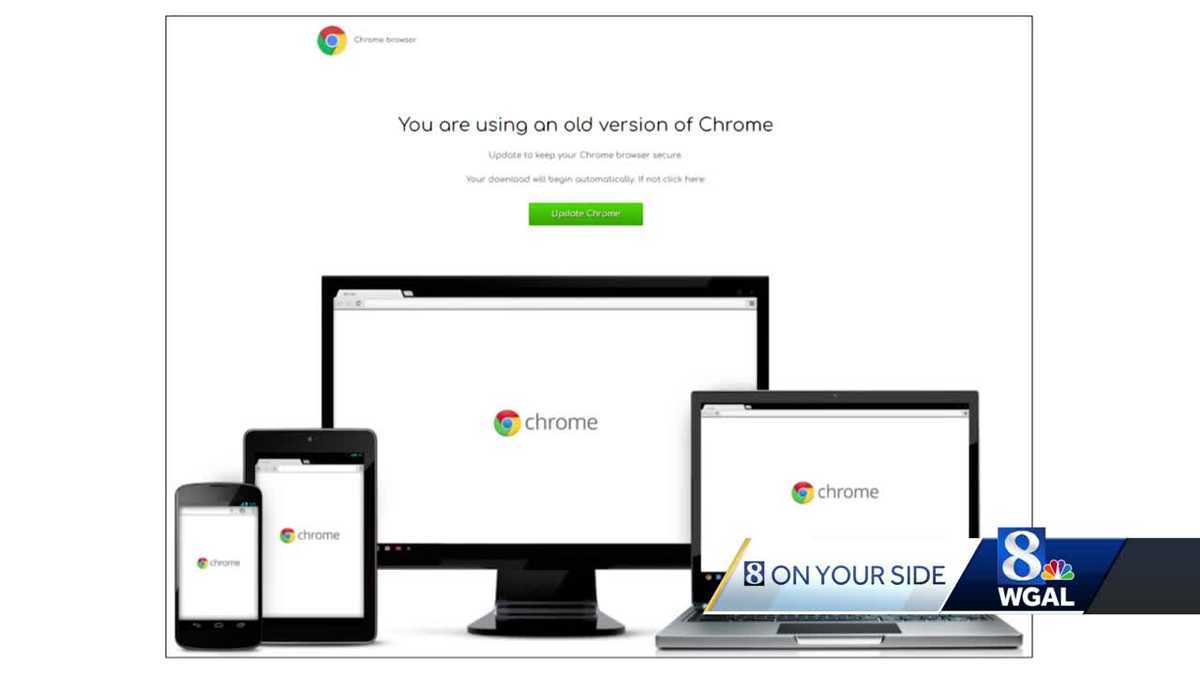- Why Visitor and Contractor Management is Critical in Busy Facilities
- “생성형 AI, 전 산업서 직원 생산성, 임금, 가치 개선 중” PwC 조사
- "2024년 국내 서버시장 매출 5조 원··· 72.7% 성장" 한국IDC
- NotebookLM now lets you share your notebooks with anyone with a single link. Here's how
- Cornelis Networks offers alternative to Infiniband or Ethernet for HPC and AI networks
Rapidly growing scam preys on your desire to keep your web browser secure

Cyber security experts are always telling us to keep our devices up to date to stay safe.Now hackers have found a way to use fake security updates to get into your computer and your life.”Fake browser updates are becoming increasingly more prolific for folks who are browsing on the web,” said Selena Larson, with Proofpoint.It starts with a message claiming that you need to update your web browser. The message includes a convenient link to get started. “So, what happens is people think, ‘Oh, I guess my browser is telling me to update.’ It’s actually a hacker that is telling you to update your browser,” Larson said. If you fall for the bait, the hacker downloads malware into your machine.”We see things like information stealers, so a hacker might be able to obtain data like passwords or stuff that you’re inputting into a browser or inputting into your computer,” Larson said.They can also download a RAT – a remote access trojan – that allows them to control your computer.”The actors are really preying on our innate desire to be secure. Us, as people who use the internet, we don’t want to fall for something. We don’t want to be the weak link in the chain,” Larson said.If you want to make sure your browser is updated, Larson said, “The best way to do that is to go into your browser settings and to check for updates.”Most browsers can be set to automatically check for updates. Just search through settings and security on your browser to do that.
Cyber security experts are always telling us to keep our devices up to date to stay safe.
Now hackers have found a way to use fake security updates to get into your computer and your life.
“Fake browser updates are becoming increasingly more prolific for folks who are browsing on the web,” said Selena Larson, with Proofpoint.
It starts with a message claiming that you need to update your web browser. The message includes a convenient link to get started.
“So, what happens is people think, ‘Oh, I guess my browser is telling me to update.’ It’s actually a hacker that is telling you to update your browser,” Larson said.
If you fall for the bait, the hacker downloads malware into your machine.
“We see things like information stealers, so a hacker might be able to obtain data like passwords or stuff that you’re inputting into a browser or inputting into your computer,” Larson said.
They can also download a RAT – a remote access trojan – that allows them to control your computer.
“The actors are really preying on our innate desire to be secure. Us, as people who use the internet, we don’t want to fall for something. We don’t want to be the weak link in the chain,” Larson said.
If you want to make sure your browser is updated, Larson said, “The best way to do that is to go into your browser settings and to check for updates.”
Most browsers can be set to automatically check for updates. Just search through settings and security on your browser to do that.

